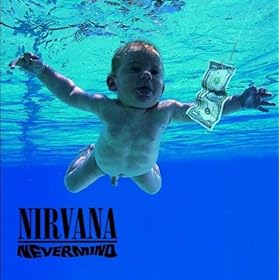Can I focus for a while on that last thing? Rock's overtly misogynistic lyrics? I have to credit Nirvana for, at least, providing an alternate version of rock's masculinity that didn't take pleasure in degrading women.
Amanda Marcotte wrote a great piece for The Daily Beast about Nirvana's "secret feminism ," but I don't think it was really all that secret. Kurt did, from what I could tell, respect women as artists and as peers: he married one. And even if Kurt and Courtney's version of marital bliss strayed, er, pretty far from the norm, I'm pretty sure they were soul mates. Kurt also wrote lyrics that twisted gender roles, sometimes singing from a woman's point-of-view, most notably in the controversial song "Rape Me, from Nevermind's follow-up, In Utero" :
Many of the women interviewed initially found “Rape Me” an unsettling song, but eventually came around to seeing it as Cobain’s clumsy but well-intentioned attempt to incorporate feminist theory into his worldview. It’s one of the few songs in all of rock history to acknowledge rape as a crime of power and violation, instead of excessive sexual desire. Many feminists object to using rape as a metaphor this way, but what was undeniable was Cobain’s extreme hostility to the possessive mentality that leads to rape.I'm in the camp that says rape shouldn't be used as a metaphor, or at least tread very, very lightly if you do especially when you are a cis, straight, white man with tons of industry respect and critical and commercial clout. I definitely have mixed feelings about that one. On one hand, I love that a man is able to put himself in a vulnerable position, but there's still a hint of appropriation going on. But during a time when not many people were talking about rape as a crime of power, not sexual conquest -- at least not outside academia -- it was a risky move, and one that paid off in the end.


No comments:
Post a Comment